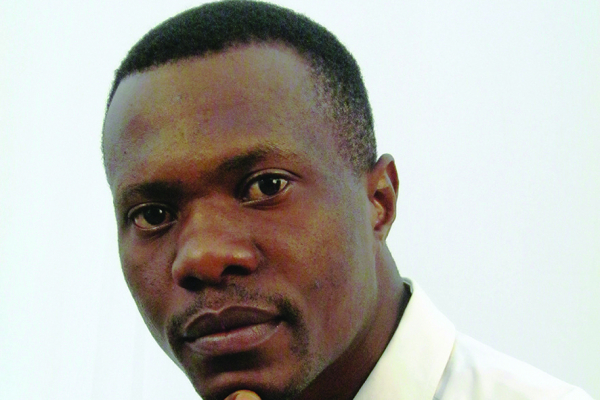
guest column:Learnmore Zuze
It is apparent that the current crop of politicians in Zimbabwe really has little to do with the welfare of masses but self-enrichment. Statements from some officials from the two major parties, Zanu PF and MDC bear testimony that they are the very people throwing spanners in the dialogue initiative.
The purported chance meeting between MDC Alliance leader Nelson Chamisa and war veterans leader Christopher Mutsvangwa in South Africa had somehow excited people in general and the media in particular. It emerges that there are some top positioned people who would fight tooth and nail to scuttle the much-hyped dialogue. Honestly, pouring scorn on one leader when you are a junior in your party is palpable proof that individuals benefitting from the status quo have become the new enemy of the Zimbabwean people.
Apart from the incessant efforts to disturb dialogue between Zanu PF and MDC A, Zimbabwe still remains gripped by a dilemma; what exactly will the dialogue achieve?
The much-hyped talks between Zanu PF and MDC Alliance are likely to remain just but a storm in a teacup. The hype has so much been on the talks and the chief principals but little in the way of what exactly is to be achieved by this national dialogue.
The subject continues to ring with indignation in various media but it is imperative that a holistic approach is adopted. The tattered economy raises emotions and naturally people would want to see stability in the economy at the soonest possible moment but the question remains as to whether two ideologically opposed political parties can form a functional government.
Various entities continue to chorus the pressing need for MDC Alliance leader Nelson Chamisa and incumbent President Emmerson Mnangagwa to dialogue. Even business executives in the country have called for a national dialogue to address the challenges facing the country. The United States also added its voice, saying the talks should be mediated by a neutral arbiter. Church leaders as well have voiced the urgent importance of the talks as the economy titters on the brink. MDC Alliance led by Nelson Chamisa has consistently failed to meet for the purported dialogue outlining conditions before the commencement of dialogue. It is undeniable that the country’s challenges need to be addressed collectively, but it doesn’t seem to be occurring to those calling upon this initiative what exactly is meant to be achieved by this much-talked about dialogue. Are governments of national unity sustainable? How far can they go? Do they offer lasting solutions?
Dialogue is very critical but it is more critical to appreciate what precisely the point of the talks is. Every sane Zimbabwean, no doubt, unites in the need for economic stability, but it is key that we be clear on what is to be the point of address.
- Chamisa under fire over US$120K donation
- Mavhunga puts DeMbare into Chibuku quarterfinals
- Pension funds bet on Cabora Bassa oilfields
- Councils defy govt fire tender directive
Keep Reading
Do the talks seek to amalgamate the major political parties as happened between Zanu PF and PF Zapu in 1987? Is the objective to have a government of national unity as happened between Zanu PF and MDC-T in 2009? Many people in modern times will recall the stability that immediately followed after Tsvangirayi consented to the government of national unity, but the burning question is how long did it last.
The framework for the called-for dialogue between Mnangagwa and Chamisa seems vague; the only thrust is on economic revival, but how exactly should this be achieved given the gigantic political ideological differences between the two parties?
At one time, Nelson Chamisa described the proposed dialogue as “meaningless” insisting that Mnangagwa’s government should halt the arbitrary arrests and persecution of his party members. While we may all clamour for dialogue between Chamisa and Mnangagwa, it is vital that we start with the end in mind. It is vitally urgent that we truthfully do an introspection as to what we wish for. Chamisa and Mnangagwa wield polar opposite political ideologies and it is precisely due this fact that the talks may work in the interim but troubles are sure to follow as happened between the late former Prime Minister Morgan Tsvangirayi and deposed ex-President Robert Mugabe.Under intense pressure, Tsvangirayi forged an alliance with Robert Gabriel Mugabe but the deal went awfully wrong along the way. Tsvangirayi, as the chief minister in Government was disrespected by Mugabe’s ministers. He kept being insulted. Without clarity as to purpose, we risk having a replica of the scenario which played out in the so-called “marriage of convenience” between Tsvangirayi and Mugabe.
The process did not start with the end in mind; finally we saw Tsvangirayi being at loggerheads with Mugabe again.
The arrangement is temporary and people with ideological differences will always conflict.
It must be appreciated that Zimbabweans have been in this place before; they have seen it all. Zimbabweans know what GNUs finally lead to.
The road is littered with impediments. The rivalry between Mugabe and Tsvangirayi came back renewed with vigour after the collapse of the GNU.
It is for this reason that a plausible objective must be set out regarding the dialogue. We have been there before and we know for a fact where this route leads. Zimbabweans have suffered for a long time and no longer need piecemeal solutions to their prolonged suffering.
If this dialogue is to have meaning and yield a positive outcome, then there is more that should be looked at than simply the urgent need to stabilise the economy. The culture of having State resources being used to repress the masses must truly be ended.
What this simply means is that political parties with different perceptions will try to run country concurrently. It is this recipe which breeds disaster. Zimbabweans have been there before.











